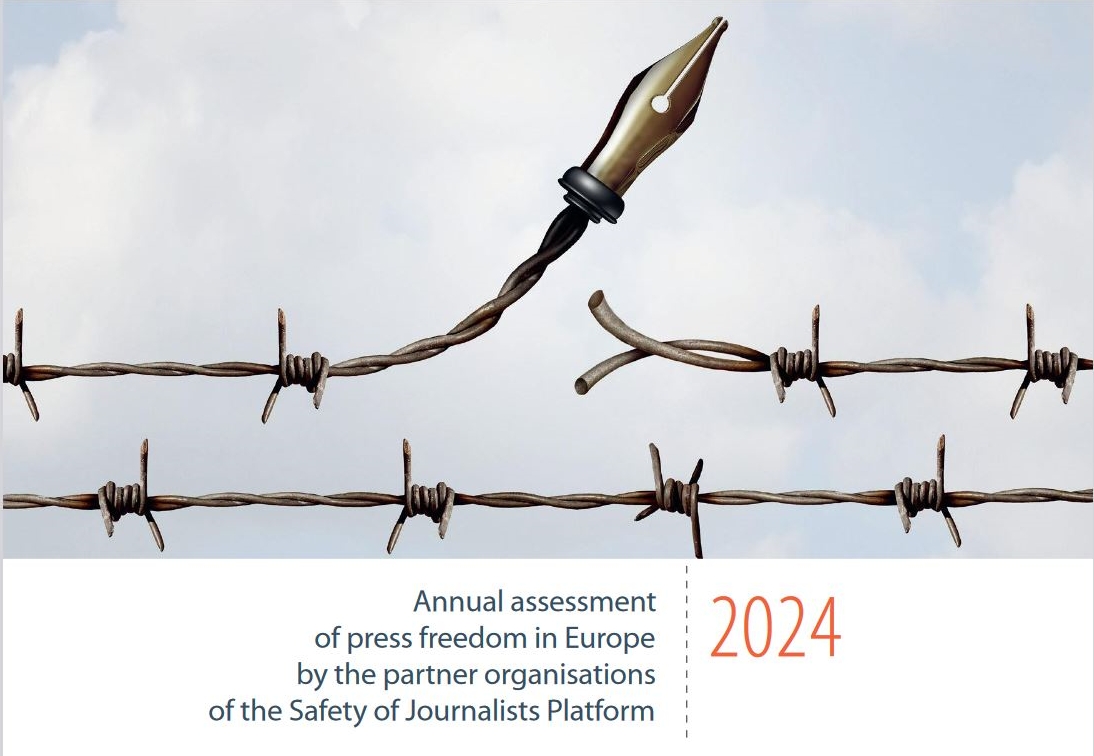
The recent publication of classified documents from the Pentagon is one of the biggest intelligence scandals in recent times.Continue reading

The Council of Europe (CoE) has published its 2024 Annual assessment of press freedom in Europe, compiled by its partner organizations of the Safety of Journalists Platform. Although Hungary comes up almost on top of the list for the safety of journalist, the report paints an alarming picture about the methods of the media organizations that compiled the review. It also sheds a worrying light on the CoE’s increasing reliance on radical left-wing NGOs for its assessment of European democratic institutions.
The CoE report entitled “Press Freedom in Europe: Time to Turn the Tide” assesses the safety of journalists in European countries by collecting what they call “alerts”. Alerts are reports of threat or violence against a journalist’s person. On the basis of this, perhaps not surprisingly, countries on the European fringes do worst, with Belarus leading the way with some 42 alerts in 2023. They are closely followed by Russia (39), then Turkey (27) and Ukraine (24).
Among European Union member-states France (19) and Italy (16) fared worst, while six countries have received top marks with only one alert each: Malta, Denmark, Ireland, Latvia, Portugal, Romania. Hungary was said to have receive two alerts in 2023.
Surprise- surprise! In comparison to other European countries, Hungary looks very good.
Where in Europe has the worst media freedom? https://t.co/BZBxlD5dQH— Frank Furedi (@Furedibyte) March 5, 2024
The report’s points of criticism against Hungary ranged from allegations of using spyware against journalists, to warnings against the new bill for the protection of national sovereignty. The authors claim that “Pegasus spyware had been used to surveil journalists in Azerbaijan, France, Greece, Hungary, Spain, Türkiye and the United Kingdom. Not only were the government responses to these revelations lacking transparency, but new cases emerged in 2023.” The CoE report goes on to claim that “In Hungary, where at least four journalists, 189 media workers and media owners were surveilled using Pegasus in 2021, journalists have launched various legal proceedings and are still seeking justice. The Hungarian National Authority for Data Protection and Freedom of Information maintains that in all the cases they investigated, including those involving journalists, all legal criteria for the application of the spyware were met and the spyware was used to protect national security.”
The wording of this conclusion is strongly misleading as it creates an impression that Hungarian authorities have admitted to such surveillance, and defended themselves by saying the they have acted lawfully in these case.
This is not what the National Authority for Data Protection and Freedom of Information (NAIH) investigation into alleged use of Pegasus Spyware concluded. The NAIH report states that on the hand hand, the Hungarian authorities are permitted to use surveillance with external authorization in cases of criminal activity or terrorism. On the other hand the “Authority’s investigation has not brought to light any information indicating that the bodies authorized to collect secret information subject to an external authorization, would have used spyware for purposes other than the … prevention and detection of crime and terrorism, and in the performance of their statutory duties.” In other words,
there is no evidence of Hungarian intelligence services surveilling journalists for their anti-government activities, as countless other reports have alleged.
The allegations of Pegasus spyware surveillance against Hungarian journalists has originated through an investigation conducted by Amnesty International, a political lobby group funded partly by institutions close to U.S. oligarch, George Soros.
The report also claims that “in Hungary, a bill aimed at protecting national sovereignty may affect the media as the Sovereignty Protection Office (SPO) will monitor attempts at disinformation”. However, the SPO was created specifically to monitor and report on foreign interference in the Hungarian democratic process, more specifically, as an
answer to the foreign funding scandal, in which U.S. groups close to George Soros have been found to have financed the Hungarian opposition’s election campaign to the tune of millions of dollars.
Furthermore, the unfavorable conclusion came from a well-known left-wing activist journalist, who has worked for the now defunct opposition newspaper Népszabadság, Edit Inotai. She now writes for the liberal news portal, Balkan Insight, also funded by bodies close to Soros’ Open Society Foundations.
The CoE report goes on to state that the Hungarian Act on the Defense of National Sovereignty “threatened to put a final nail in the coffin for the independent media”. These allegations are in turn based on an analysis published by Article 19, yet another NGO funded by Soros’ OSF, as well as USAID, and Freedom House.
Last but not least the CoE report complains about the treatment of two Hungarian cartoonists. One of them, Gábor Pápai, “has incurred the wrath of religious lobbies with the blessing of Mr Orbán’s party”, claims the report. It is unclear what evidence the authors have found in order to arrive to a conclusion that religious lobbies conspired against the cartoonist with the “blessing of Orbán’s party”, yet Mr. Pápai’s cartoon depicting Jesus on the cross in an offensive and intentionally spiteful manner would have likely earned him serious legal consequences, or even physical threats, should he had done so with the symbols of any other world religion.
The report also states that “the cartoon of the Hungarian Prime Minister earned the cartoonist Béla Weisz a media campaign of denunciation that led to his ostracism”. If Mr. Weisz chose to depict the democratically elected prime minister of a European nation as a cancer on the back of Europe, he should indeed brace himself for some criticism for his distasteful and repugnant “art-work”. Both cartoons have been published on the pages of the viciously anti-government left-wing newspaper Népszava.
The Council of Europe’s complete reliance on radical left-wing NGOs and media organizations, as well as its palpable intimacy with bodies close to George Soros’ Open Society Foundations has resulted in all too predictable distortions. Nevertheless, it is a positive development that even with sources exclusively on the left-side of the media spectrum,
the Council was able to recognize the fact that journalists in Hungary can work and live without fear of repression or violence, unlike in many other Western European countries.
Featured Image: Council of Europe